The Picard Maneuver
Also [email protected]
- 205 Posts
- 368 Comments

 15·2 years ago
15·2 years agoThis is why I love TNG so much. Even though TOS is the original that laid the groundwork for everything, TNG took that “boundless optimism” and ran with it. Watching TNG inspires me to continue to self-improve and encourage it in others.

 2·2 years ago
2·2 years agoYeah, there’s a singular implied “universal morality” throughout Star Trek of accepting diversity and learning to not impose on other civilizations or each other on the basis of one’s biological differences or culture, even for Klingons! I’d say the rest is hard to define and subjective, as @[email protected] said above, but post-scarcity and free agency in life to follow your passions has to be pretty close!

 2·2 years ago
2·2 years agoThat’s a good point. I think this contrast between individual (often flawed) human judgment vs collectivist ideals has always been a theme. In TOS, you see Kirk calming McCoy’s knee-jerk reactions almost every episode. In TNG, it was Yar or Worf. In DS9, probably Kira.
Even then, I would say the collectivist ideals (i.e. Starfleet regulations) were more often portrayed as overly-cumbersome in implementation, which leads to someone like Kirk violating the rules in place of the ideals that they stand for. For example, how many naïve (but well-meaning) diplomats do we see in TOS or TNG? However, rules being restrictive or imperfect in an effort to support larger agreed-upon morals can still be trusted, compared to corrupt power structures, which cannot.

 3·2 years ago
3·2 years agoAh damn, sorry about the paywall. It let me hit “continue reading” on mobile, but I know sometimes these types of sites can be inconsistent.

 7·2 years ago
7·2 years agoIt’s just another tired bit about how following orders and perfect institutions are what Star Trek is really about, to hell with any evidence to the contrary.
I’d argue that the theme is less about following orders and more We are all individually flawed and are at our best when we follow our shared values - which is represented by both Starfleet and the utopian setting as a whole.
I can see the argument (for fiction and real life), that as we trust institutions less, our focus becomes more on individual judgement rather than collectivist ideas. It also tracks for me that as this occurs in real life, our media would reflect individualism more and more.

 18·2 years ago
18·2 years agoI’ve admittedly still only watched up through the 90s, but I’d definitely say that DS9 depicted a significantly more “morally gray” version of Starfleet than TOS or TNG.
I think the point the author is making is that the extent to which this idea gets explored is reflective of our society’s growing mistrust of institutions IRL, rather than suggesting the theme has never been explored.

 8·2 years ago
8·2 years agoRainbow rocks
Why aren’t we fixing this?!

 11·2 years ago
11·2 years agoWhat a great episode though. I just finished a rewatch of TOS a few weeks ago, and I love it so much.

 57·2 years ago
57·2 years agoAlmost 60 years worth at this point. Hope you enjoy the journey!

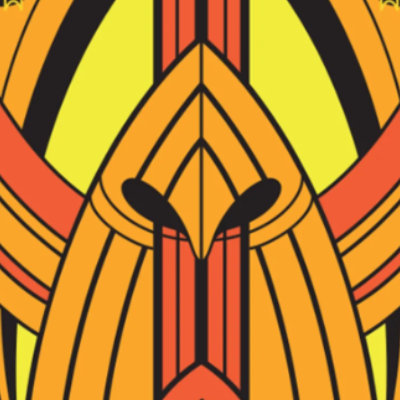 5·2 years ago
5·2 years agoHopefully people who browse lemmy via browser are finding a way to read this page. This post was failing to load for me even while logged out for some reason. Luckily I saw it from a mobile app and knew to clear cache/cookies, because otherwise I might have just assumed it was down.

 3·2 years ago
3·2 years agoThis was my experience in Voyager as well.

 64·2 years ago
64·2 years agoBlack mirror is a lot like a modern Twilight Zone, which early Star Trek was significantly influenced by, and now a fan who directed an episode inspired by Trek gets to do actual Trek?
I can feel my hopes getting up.

 8·2 years ago
8·2 years agoMy wife was the one who showed it to me… She asked “Is this how you live??”

 5·2 years ago
5·2 years agoThere are a lot of crossover symptoms between sleep disorders and ADHD, but also, yeah - Ritalin is one of the top medications for treating ADHD too.

 17·2 years ago
17·2 years ago
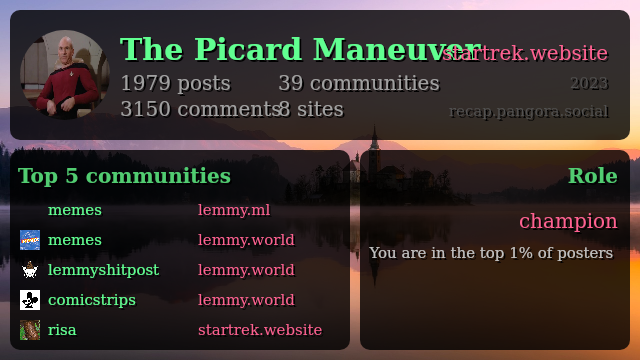
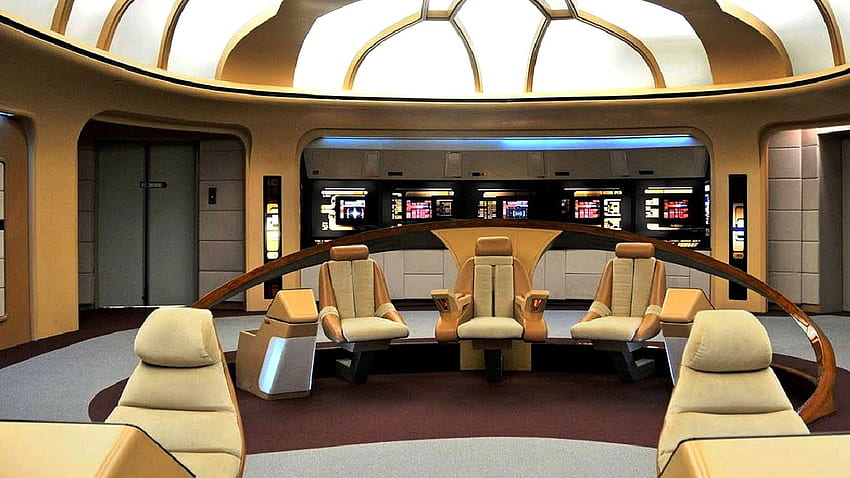


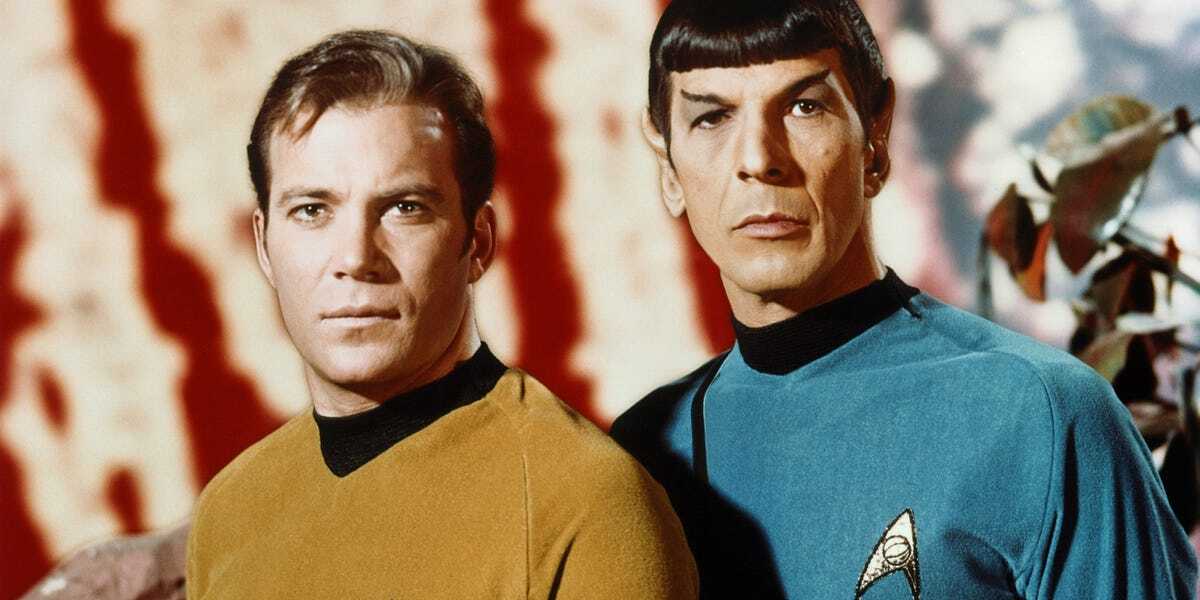


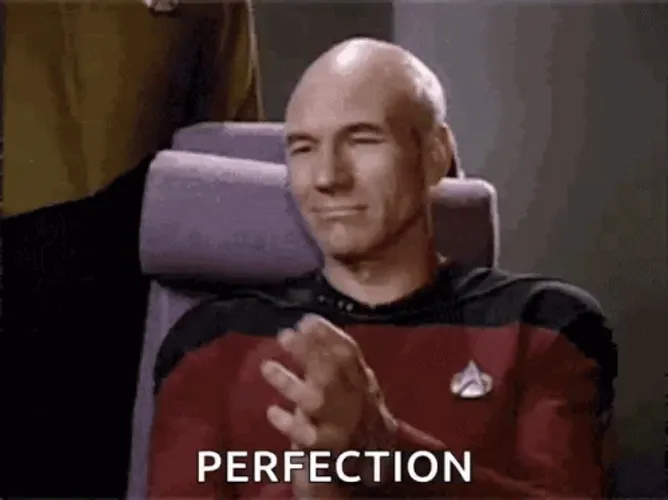


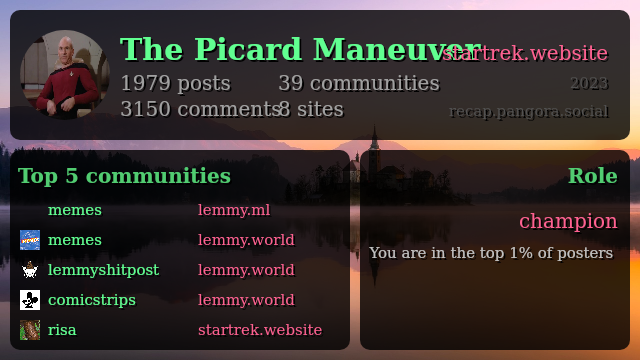
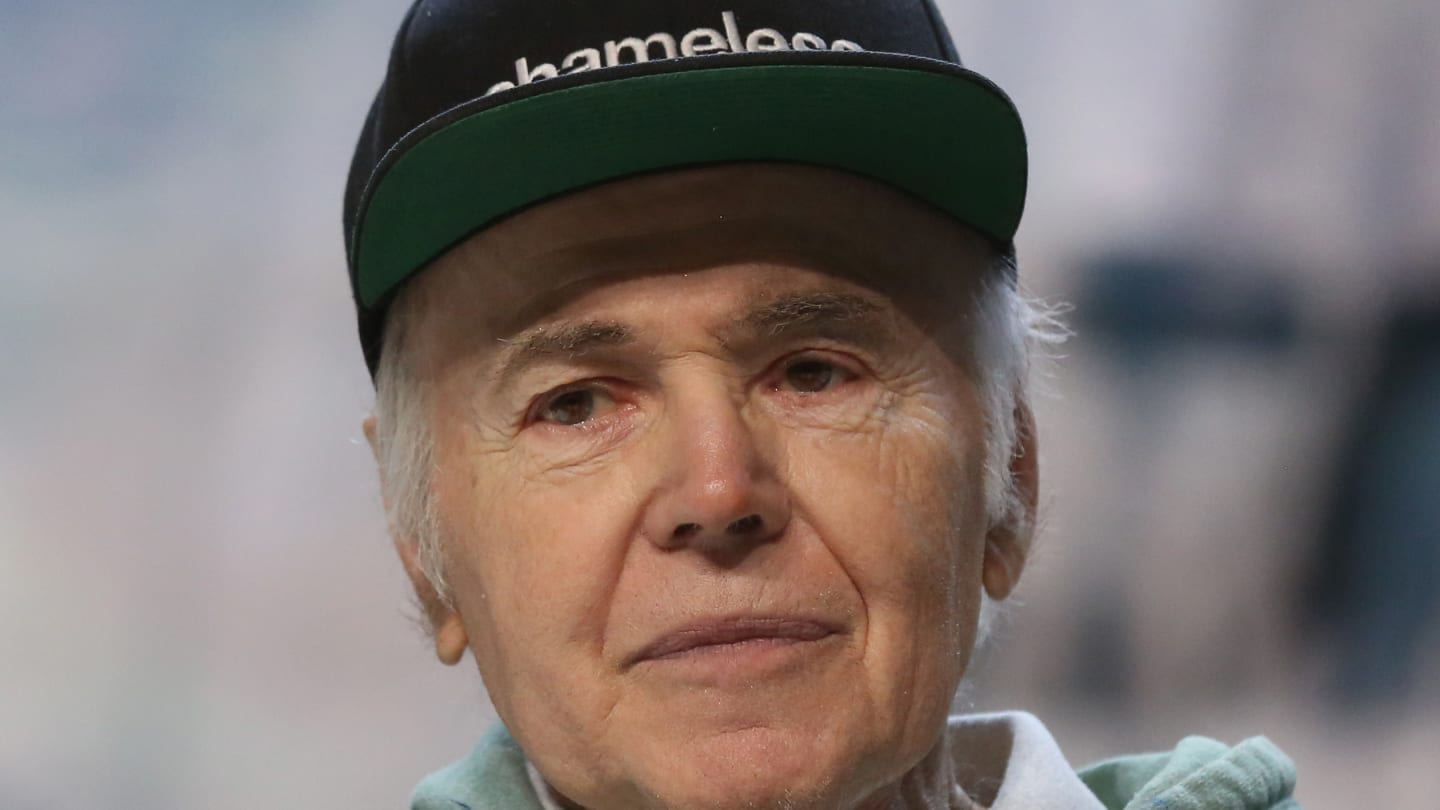



Usually, but I love the optimistic fanfare of the TNG intro, and it has a habit of drawing me in.